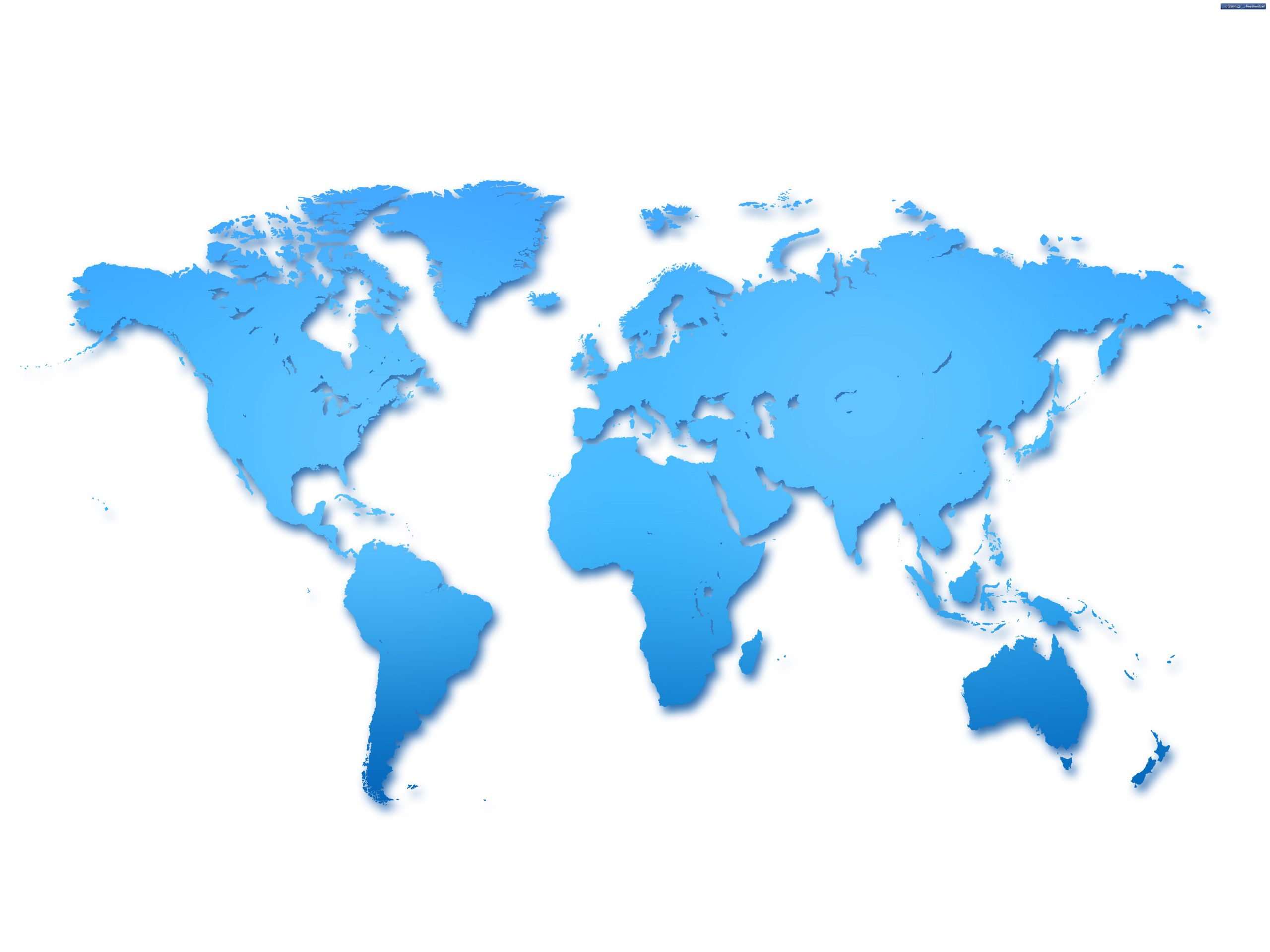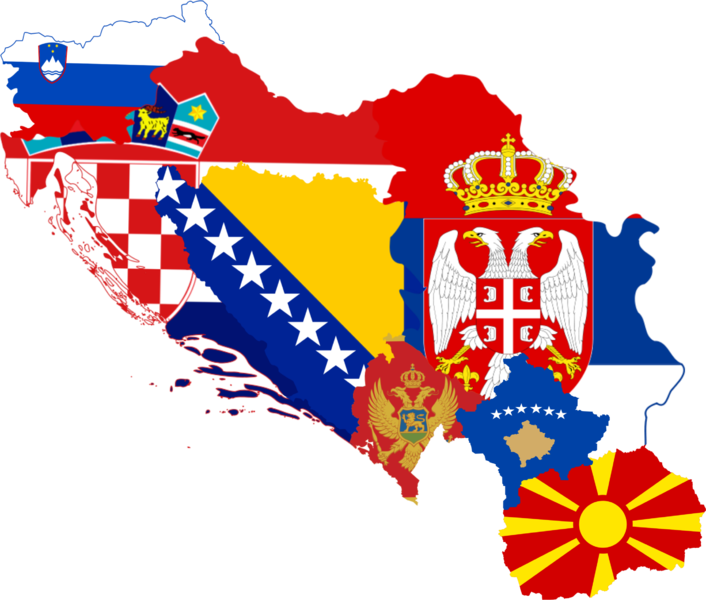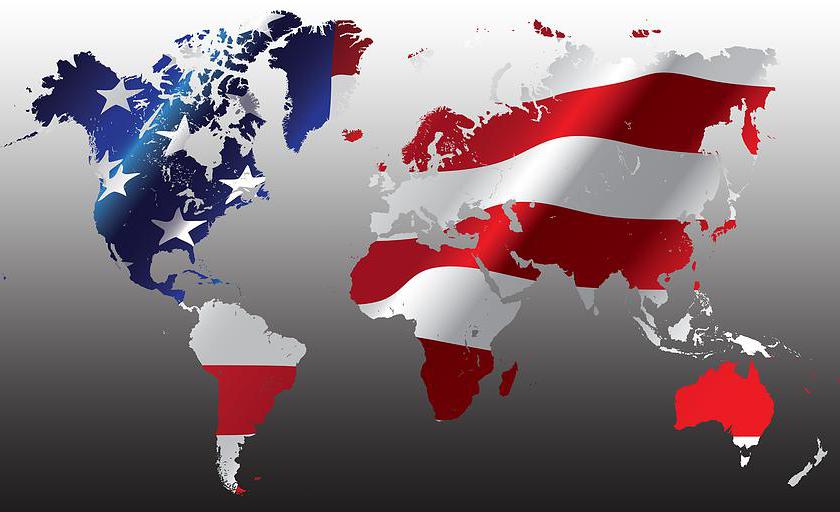
Views: 2194
“Balkanization” is the weaponized perversion of anti-colonialism taken to its ultimate extreme, and it’s being wielded by the declining Unipolar World Order to divide and conquer the Eastern Hemisphere in order to prevent the natural emergence of multipolar civilizational blocs as the inevitable outcome of Silk Road Globalization.
The rising trend of separatist and autonomous movements in Western Europe, the cradle of the modern-day nation-state system, has prompted concern that the end of the nation-state era is drawing near. To be clear, a nation-state isn’t the same as an ethnic state, although there’s sometimes an overlap such as in the cases of Poland, Hungary, Croatia, Armenia, the Koreas, and Japan, for instance. For the most part, however, a nation-state is a relatively new phenomenon that owes its genesis to the Age of Romanticism that began after the French Revolution of the late 18th century, from whence the European Great Powers were later inspired to promote a centralized identity in their own ethno-regionally diverse continental realms. The accompanying rise of state-based nationalism eventually gave way to a handful of new European countries after the end of World War I, while the decade and a half following the conclusion of the Second World War saw the explosive growth of dozens of new states all across the “Global South” (“Third World”).
These newly created political entities arrived on the geopolitical scene much later than their European counterparts, and many of their borders were arbitrarily decided by their former imperial masters. As a result, a multitude of highly diverse and sometimes even hostilely contradictory identities were forced together into the same administrative unit against their will, and the newly created nation-states that they suddenly became a part of had no experience in smoothing over identity differences and establishing an inclusive national narrative. Instead of being patient and giving the new authorities the time that they understandably needed to correct the imperial-era divisions that the Europeans exploited within their territories, some groups resorted to armed insurgencies in seeking to break free from the nation-states that they had been formally made a part of in order to create their own exclusive ethnic statelets. This represented the beginning of the “Balkanization” trend, which sought to capitalize on the anti-imperial one that had immediately preceded it.
“Balkanization” is simple enough to comprehend and is very closely related to Hybrid Wars, as it’s essentially nothing more than externally provoked identity conflict that exploits preexisting identity differences for geostrategic purposes.
The “organic” or “natural” pretext for “Balkanization” is that a purportedly marginalized minority group wants to create its own state, but the Machiavellian motivation that’s usually behind this is that an external power has an interest in dividing and ruling a given territory, which is why they oftentimes make the decision to back its “Balkanization”. What’s important to mention in this context is that the military tactics of “Balkanization” don’t really differ all that much from the ones associated with anti-colonialism, in that both sorts of conflicts were traditionally waged via insurgencies. The key difference, however, is that the anti-colonial insurgencies were fought to create inclusive identity-diverse political entities that could then have a chance to become nation-states in the period thereafter, while “Balkanization” insurgencies aim to carve out exclusive identity-centric statelets.
To expand a bit more on this tangent, it was generally the Soviet Union that supported anti-colonial insurgencies across the world because of the shared ideological overlap that these struggles usually shared with the communist cause, though the insurgent dynamic began to flip near the last decade of the Cold War due to Jimmy Carter’s proto-Reagan Doctrine in laying the basis for orchestrating anti-communist insurgencies in pro-Soviet “Global South” states such as Afghanistan, Angola, Cambodia, Ethiopia, Mozambique, and Nicaragua. After the end of the Cold War, insurgencies generally became the domain of anti-nation-state actors fighting to break away from ethnically diverse states in order to establish their own exclusive ethnic fiefdoms. This was certainly the case in the former Yugoslavia with Slovenia, Croatia, and the historical Serbian Province of Kosovo, though the examples of Eritrea and the southern Nigerian region of “Biafra” are notable exceptions because they occurred during the middle of the Cold War and not afterwards.
As for the Kurds, who are commonly brought up in this context, their separatist “Kurdistan” project always functioned as a “second geopolitical ‘Israel’” no matter which party was backing it at any given time, though their cause has become ever more popular in recent years as the US promotes the “Balkanization” of the Mideast through “Blood Borders” and the revision of the Sykes-Picot Agreement that established the modern-day nation-states in the Mideast. Accepting that this and a few other exceptions (Eritrea, “Biafra”) exist to the articulated model, the prevailing trend is that anti-Western anti-colonial insurgencies during the Old Cold War have given way to pro-Western “Balkanization” Hybrid Wars in the New Cold War as the principle of “separateness” becomes perverted in a weaponized form by exploiting anti-imperialism sentiment.
The new narrative is that the post-colonial state authorities are “internal imperialists” who must be opposed by ethno-regional minority “anti-colonialists”, with the only “solution” being to separate from the “Global South” “imperial” state just as their predecessors did from their European counterpart decades ago. If the “international community” (West) won’t outright support their Woodrow Wilson-era “self-determination” desire for an independent state for whatever the contemporaneous geostrategic reasons may be, then the fallback plan is to internally partition the targeted state through “Identity Federalism” (“Bosnification”). The irony of it all is that these processes used to take place exclusively within the “Global South” and the former “Second World” communist countries of Yugoslavia and the USSR, but have now boomeranged back to the “First World” nation-state cradle of Western Europe with the cases of Catalonia and Flanders.
Interestingly, like it was argued in the author’s two hyperlinked pieces above, the “Balkanization” of Europe from a bloc of nation-states to a “federation of regions” is also part of a larger geopolitical divide-and-control scheme, both by the EU’s “Cultural Marxist”-Globalist elite and the US’ unipolar strategists. The fragmentation of a broad collection of inclusive identity-diverse nation-states (e.g. Spain, France, Germany, etc.) into exclusive identity-centric statelets is designed to reverse the multipolar momentum driven by Russia and China in pioneering large identity-inclusive blocs (e.g. the Eurasian Economic Union, SCO) ambitiously integrated together through Beijing’s One Belt One Road global vision of New Silk Road connectivity. The emerging Multipolar World Order aims to overcome the US’ “Clash of Civilizations” blueprint for dividing and ruling the Eastern Hemisphere by promoting a “Convergence of Civilizations” that seeks to stabilize it.
The end result of Chinese-driven Silk Road Globalization and its US-backed Western counterpart is a Civilizational World Order, albeit with differing geostrategic arrangements and loyalties, as the Chinese one will be defined by fewer and more diverse actors, while the American one will have multiple actors that are more homogenous. Washington’s hijacking of the global populist zeitgeist is part of its plan to strategically exploit certain movements and use them to destroy the New Silk Roads that are required to undergird the future Chinese-led international system. Moreover, the “Balkanization” of China’s identity-diverse nation-state transit partners alongside it and Russia’s Eurasian peripheries will encourage centrifugal forces within their own borders as well, which altogether represents the weaponization of chaos theory by the declining Unipolar World Order in order to indefinitely delay its replacement by the multipolar one.
The unraveling of the nation-state will have profound consequences on the future of International Relations and in particular on the inclusive identity-diverse multipolar Great Powers driving the diversification of stakeholders in the Multipolar World Order. As geo-demographic “coincidence” would have it, however, the Western Hemisphere is largely insulated from similar Hybrid War vulnerabilities owing to its comparatively more identity-homogenous composition of Latin American “mestizos” who replaced the natives following the conquistadors’ genocide against the original inhabitants. Although the US is much more multicultural than its southern counterparts despite killing off most of its own native people as well, its ethno-regionally diverse population is transplanted from the “Old World” and doesn’t have as much of an “historical stake” in territorial separateness as the their Eastern Hemispheric counterparts, which is why it’s very unlikely that it will suffer any “Balkanization” blowback in the same form (key qualifier) as it’s inflicting on others halfway across the world.
Taken together, the Western Hemisphere’s relative structural resistance to Hybrid War “Balkanization” and externally supported divide-and-rule separatist conflicts positions its northern and southern landmasses to collectively function as the US’ “Fortress America” in the event that Washington needs to retreat to a geostrategic redoubt if its weaponization of chaos theory is successful in totally destabilizing the Eastern Hemisphere after dissolving its nation-states. The Americas have the resources and population to remain autarkic from Afro-Eurasia, though provided that a strong degree of “central planning” is implemented in order to most efficiently utilize its assets. In this dystopian scenario, the US’ “Operation Condor 2.0” series of regional regime changes in Latin America can be understood as prudently preparing the groundwork for Washington’s future dominance over these two continents in order to be in the best position possible for reestablishing “Pax Americana” after the death of the nation-state.
Originally published on 2014-11-24
Author: Andrew Korybko
Source: Oriental Review
Read our Disclaimer/Legal Statement!
Donate to Support Us
We would like to ask you to consider a small donation to help our team keep working. We accept no advertising and rely only on you, our readers, to keep us digging the truth on history, global politics and international relations.
FOLLOW US ON OUR SOCIAL PLATFORMS











